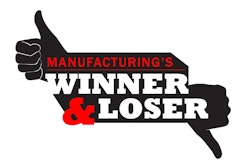This article originally appeared in IMPO's April print edition. To view the digital version, click here.
When it comes to plastic machined parts, quality goes beyond what you can easily see. Often, a part might look right, it may pass initial quality control tests and it might even perform well in the field at first. But two weeks or two months down the road, something goes wrong.
What Happened?
The problem may not be in the design. It might be in the manufacturing process, especially if the manufacturer also makes metal parts rather than focusing exclusively on machined plastic parts.
While a metal machinist may be capable of making a plastic machined part, choosing the wrong machininst may result in a product failing in the field. Contamination risks and a lack of plastics expertise can contribute to problems that often don’t arise until after a part is already in the hands of the customer.
Here are a few points to consider before hiring a metal machinist to make a plastic machined part:
- Metal Contamination. Making a plastic part on a machine that also crafts metal parts can lead to contamination. No matter how well a company cleans its equipment, it’s difficult to get every tiny fragment of metal off a machine. Those fragments can become embedded in a plastic part and cause them to degrade over time. Just imagine a $2 million machine short circuited in the field, and after taking the whole machine apart, the manufacturer discovers a small metal fragment in one of the machined plastic parts. That little piece is all it takes to create a major problem.
- Oil Contamination. What is good for metal can wreak havoc on plastic. Metal machining often requires the use of oil-based cutting fluids. Even the cleanliest of manufacturers will have trouble removing all of the oil residue from a machine before running a plastic part. Many plastics are highly sensitive to petroleum-based cutting fluids and will degrade if they come into contact with them. Also, many plastics are hydroscopic and will absorb the cutting oils. These problems can be hard to spot at first glance. One medical analytics company found this out the hard way. They had a product that failed in the field, they thought, due to static. After closer examination, they discovered that one of the plastic parts had tiny cracks due to crazing, a degradation due to cutting oils. The cracks were so tiny that they were only visible when the part was viewed under a microscope.
- Materials Knowledge. A good plastics machining company will be knowledgeable about what types of plastics are best for what uses and will be up on the latest materials — expertise that a metal machinist likely won’t have. A plastics machining expert can share information on what plastics perform best according to factors such as humidity, abrasion resistance and thermo sensitivity.
- Manufacturing Expertise. Working with metals and plastics are decidedly different. Plastic is usually held in vices when crafting plastic machined parts. Proper technique can, quite literally, make or break a product. Machinists who don’t specialize in plastic tend to hold the plastic the same way they do metal — but that can be much too tight for plastic. If a machinist has the vices on a piece of plastic set too tightly, that plastic may flex slightly when a drill goes into it, putting stresses on the part that may not surface until later. A good plastics company, on the other hand, would understand the tension limits of different plastics, and make adjustments accordingly.
- Cost. Plastics machining companies often can be a better value than metal machinists when it comes to making plastic machined parts. There are a number of reasons for this, but, most notably, because they are plastics experts they can steer you to the right materials and operate with a reduced risk of contamination. Because of this, they can often operate more efficiently and have a better chance of getting your part right the first time. All that can save money in the long run.
Learning From Mistakes
Given all this, why do so many companies still turn to metal machinists to make their plastic machined parts? For some, it’s easier to turn to a trusted manufacturer who is already making their metal parts. Because the plastic parts often look and perform well at first, when there are problems in the field, companies don’t always realize that the culprit is the manufacturing of the part. For others, it’s simply a lack of knowledge. Some companies just don’t realize that there is such a thing as plastics machining companies that do nothing but make plastic parts.
To find a plastics machining company, there are a few points to consider.
First, make sure the company is familiar with each machining process needed for the application, as well as with the specific plastic material being used. The company should be willing to share information such as property charts or plastic material handbooks.
Second, check for certification. The plastic machining vendor who makes the fewest errors the first time around should provide the highest quality at the lowest cost. Plastic machining vendors can keep errors to a minimum if they are highly process driven. The best ones are ISO Certified, use documented statistical process control (SPC) procedures, and own the proper inspection equipment such as coordinate measuring machine (CMM) or video inspection systems.
Remember, the key is not just to find a company that can produce a plastic machined part that passes inspection, but one that can produce a part that continues to keep working up to expectations for years to come.
Alex Curtiss is President and CEO of Engineered Plastic Products Corporation in Elk Grove Village, IL. The company specializes in producing high-precision machined plastic parts for the aerospace, medical, instrumentation and water treatment industries since 1976.























